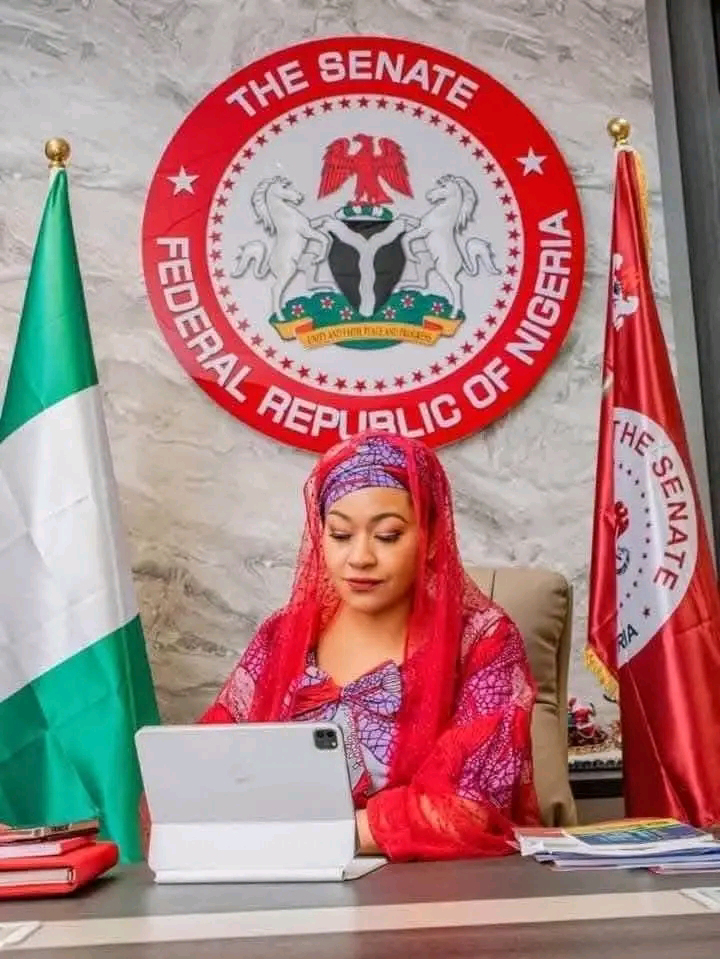In Defense of Senator Natasha Hadiza Akpoti-Uduaghan: A Stand Against Injustice and Gender Inequality
By Comrade Amb Victor Monday Olajide
**Introduction**
Senator Natasha Hadiza Akpoti-Uduaghan, an accomplished lawyer and politician, has made history as the first elected female senator from Kogi State after winning her seat in the 10th Nigeria National Assembly. A prominent member of the People's Democratic Party, her election symbolizes a significant milestone in the fight for gender representation in Nigerian politics. However, her recent encounters with allegations against the Senate President have raised serious concerns about the treatment of women in politics and the rule of law in Nigeria. This essay aims to defend Senator Akpoti-Uduaghan against these allegations and explore the ramifications her struggles reveal about the challenging future facing women in the Nigerian political landscape.
**Background on Senator Natasha Akpoti-Uduaghan**
Senator Akpoti-Uduaghan is known not only for her political accomplishments but also for her commitment to advocating for the rights and welfare of her constituents in Kogi Central. With a solid legal background, she has demonstrated her capacity to navigate complex legal frameworks and has worked tirelessly to promote justice and equality. Her election as a senator is not merely a personal achievement; it represents a clarion call for increased female representation in governance in Nigeria, a country where women have long been marginalized.
**The Allegations and the Need for Fair Hearing**
In the context of her political career, the recent allegations leveled against the Senate President have been troubling not only in their content but also in their handling. Senator Akpoti-Uduaghan has faced significant obstacles in her pursuit of justice, with powerful interests seemingly intent on suppressing her petition for due process. Instead of a fair hearing, there appears to be a concerted effort to discredit her, using tactics that reflect a broader culture of intimidation directed at women who dare to challenge the status quo.
This situation begs the question: what does it mean for the future of female politicians in Nigeria when powerful forces can stifle legitimate grievances? The lack of a fair hearing for Akpoti-Uduaghan emphasizes a disheartening trend within the Nigerian political environment, where gender biases and systemic oppression render women's voices less heard and less respected.
**The Impact on Women in Politics**
Senator Akpoti-Uduaghan's challenges serve as a microcosm of the broader struggles women face in the political arena. The implications of her case extend beyond her individual experience; they signal a bleak outlook for female representation in Nigeria. When women like Senator Akpoti-Uduaghan are silenced or face retaliatory measures for speaking out against misconduct, it sends a chilling message to other women contemplating entry into politics.
Barriers created by patriarchal norms and the intimidation of women in leadership roles can deter potential female leaders. If women are made to feel unsafe or unwelcome in political spaces, then the promise of equitable representation and diverse voices in decision-making is sharply diminished.
**Conclusion**
Senator Natasha Hadiza Akpoti-Uduaghan stands at a crucial intersection in Nigeria's political landscape—a symbol of progress in female representation and a cautionary tale of the challenges that still reign. Her ongoing battle against unjust allegations and the systemic forces undermining her quest for justice highlight the urgent need for reforms in Nigeria's political systems.
The future looks bleak for women if powerful entities continue to suppress their voices without accountability. It is essential for civil society, legal advocates, and the international community to rally in support of Senator Akpoti-Uduaghan and others like her who face similar struggles. By standing together in defense of fairness and equality, we can work towards an environment where women can participate freely and fully in the political process, fostering a more inclusive and equitable Nigeria for generations to come.





Comments
Post a Comment